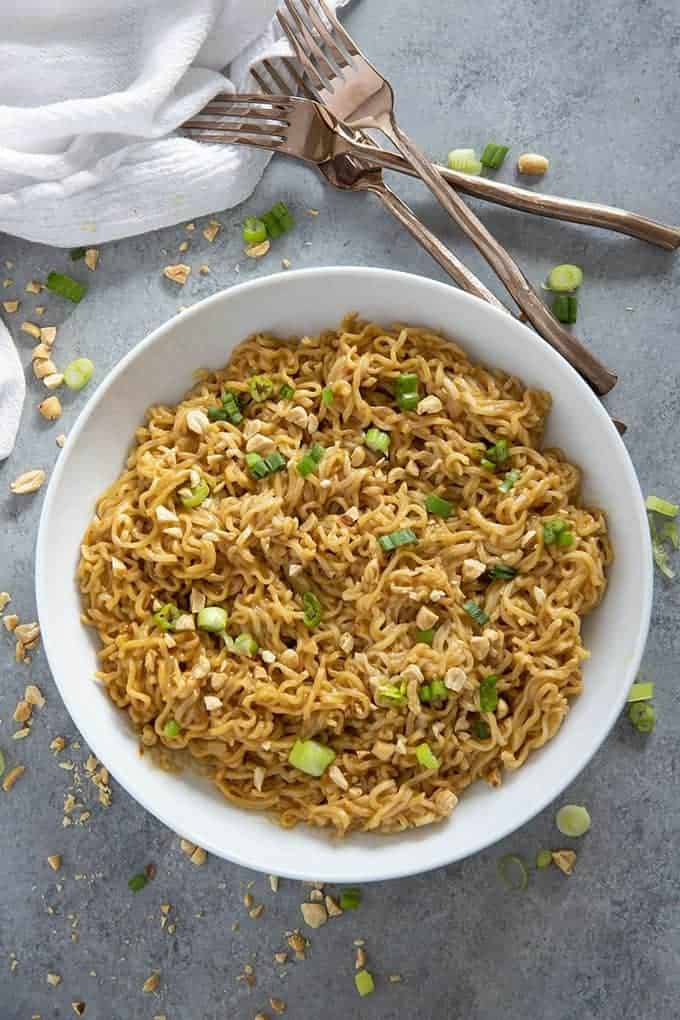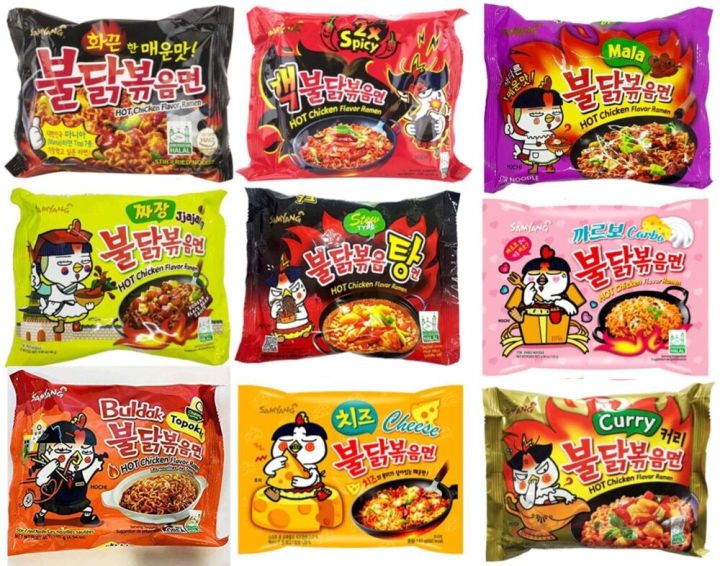Hey there! Wondering if there’s a recall on ramen noodles in 2025? Let’s dive into this topic because let’s face it—ramen is more than just a snack; it’s a lifestyle for many of us. From college dorm rooms to busy kitchens worldwide, these instant noodles are a go-to for their affordability, convenience, and taste. But with rising concerns about food safety, it’s crucial to know what’s going on behind the scenes. This article will break it down for you in plain, easy-to-understand terms so you can make the best choices for yourself and your loved ones.
Ramen noodles have become a staple in countless households, and it’s no surprise why. They’re quick, budget-friendly, and oh-so-delicious. But as food safety becomes an increasingly important topic, staying informed about potential recalls is key. In this piece, we’re going deep into the world of ramen noodles—exploring whether there’s a recall in 2025, what it means for consumers, and how to keep yourself safe. Think of it as your trusty guide to navigating the sometimes tricky waters of food safety.
Our mission here is simple: to give you the facts straight and help you make smart decisions. By the time you finish reading, you’ll know exactly where things stand with ramen noodle safety, and you’ll have all the tools you need to protect yourself and your family. So grab a bowl (of water, not noodles—we don’t want to tempt you), and let’s get started!
Read also:Where Was Sade Baderinwa Unveiling The Journey Of A Rising Star
Table of Contents
- Recent Recalls on Ramen Noodles
- Food Safety Standards for Ramen Noodles
- Is There a Recall on Ramen Noodles in 2025?
- Biological Contaminants in Ramen Noodles
- Chemical Contaminants in Ramen Noodles
- Tips for Consumers: Staying Safe
- Brands Involved in Past Recalls
- Role of Regulatory Agencies
- Frequently Asked Questions
- Conclusion and Call to Action
Recent Recalls on Ramen Noodles
In recent years, there have been some notable recalls involving ramen noodles around the globe. These incidents were mostly linked to contamination with harmful substances or labeling errors. Take, for example, a recall in 2023 by a major brand after they discovered tiny metal shavings in some batches. Yikes, right? Moments like these highlight just how critical quality control is in the food industry. It’s not just about taste anymore—it’s about making sure what’s in that packet won’t harm you.
What Causes Recalls?
Recalls on ramen noodles can happen for a variety of reasons, and it’s important to understand them so we can all stay safer. Some common causes include:
- Biological contamination, like bacteria or mold
- Chemical contamination, such as pesticide residue or excessive preservatives
- Physical contamination, think metal fragments or glass
- Improper labeling, especially when allergens aren’t listed properly
When manufacturers know what to look out for, they can take steps to prevent these issues from happening in the first place. And as consumers, understanding these risks helps us make smarter choices when filling our shopping carts.
Food Safety Standards for Ramen Noodles
Food safety standards are like the superheroes of the food world—they’re here to protect us from harm. Organizations like the FDA in the U.S. and EFSA in Europe have set guidelines to ensure that ramen noodles—and all food products—are safe for consumption. Think of these rules as the ultimate checklist for keeping things on track.
Key Standards Manufacturers Must Follow
Here are some of the key food safety standards that apply to ramen noodles:
- Regular testing to check for contaminants
- Compliance with labeling laws to ensure transparency
- Adherence to good manufacturing practices (GMP) to maintain quality
- Implementation of hazard analysis and critical control points (HACCP) to catch problems early
When manufacturers stick to these standards, they drastically reduce the chances of recalls and help ensure that their products are safe for everyone to enjoy.
Read also:Unlock The Power Of Remoteiot Vpc Ssh Download Free Your Ultimate Guide
Is There a Recall on Ramen Noodles in 2025?
As of the latest updates, there’s no official recall on ramen noodles for 2025. That said, it’s always wise to stay alert and keep an eye on announcements from trusted sources like regulatory agencies. The food industry is constantly changing, and new challenges can pop up at any time. You wouldn’t want to miss something important, would you?
To stay in the loop, check the websites of major ramen noodle brands and regulatory agencies regularly for the latest info. Subscribing to food safety alerts is another great way to stay informed about potential recalls. Knowledge is power, after all!
Biological Contaminants in Ramen Noodles
Biological contaminants like bacteria, mold, and even viruses can pose serious health risks to consumers. These sneaky little invaders can find their way into the production process through poor hygiene, bad storage conditions, or contaminated raw materials. Gross, but true.
Watch Out for These Common Biological Contaminants
Some of the most common biological contaminants found in ramen noodles include:
- Salmonella
- E. coli
- Listeria
- Mold
Manufacturers need to implement strict testing and quality control measures to catch these contaminants before their products hit the shelves. It’s all about keeping you safe—and that’s something we can all get behind.
Chemical Contaminants in Ramen Noodles
Chemical contaminants, like pesticides, preservatives, and additives, can also be a concern if they’re present in unsafe amounts. These substances are often used during production to enhance flavor, texture, and shelf life, but too much of a good thing can be bad news.
Regulating Those Chemical Additives
Regulatory agencies have set maximum allowable limits for chemical additives in food products to keep things safe. Here are some common additives you might find in ramen noodles:
- Monosodium glutamate (MSG)
- Sodium benzoate
- Potassium sorbate
If you’re sensitive to these additives, always read product labels carefully and consider choosing alternatives if needed. Your body will thank you!
Tips for Consumers: Staying Safe
As a consumer, there are plenty of steps you can take to ensure the safety of the ramen noodles you enjoy:
- Regularly check for recalls on official websites
- Carefully read product labels for allergens and additives
- Store ramen noodles in a cool, dry place to maintain freshness
- Follow cooking instructions carefully to ensure proper preparation
Being proactive and informed is the best way to minimize risks when it comes to eating ramen noodles—or any food, for that matter!
Brands Involved in Past Recalls
Some well-known brands have faced recalls involving ramen noodles in the past. While these incidents are rare, they emphasize the importance of maintaining top-notch quality standards. A few examples include:
- Brand A: Recalled due to metal contamination
- Brand B: Recalled due to improper labeling
- Brand C: Recalled due to biological contamination
Consumers are encouraged to research the safety records of their favorite brands and opt for products from manufacturers who prioritize quality. After all, your health is worth it!
Role of Regulatory Agencies
Regulatory agencies play a huge role in keeping our food safe. They monitor the entire food supply chain, conduct inspections, and enforce regulations to protect consumers like you and me.
Meet Some Key Players in Food Safety
Some of the major regulatory agencies involved in food safety include:
- FDA (United States)
- EFSA (Europe)
- FSANZ (Australia and New Zealand)
These agencies collaborate closely with manufacturers to address issues and prevent future recalls. They’re the unsung heroes of the food world, working tirelessly to keep us safe.
Frequently Asked Questions
1. What Should I Do If I Suspect a Recall on My Ramen Noodles?
If you think your ramen noodles might be part of a recall, check the packaging for any recall notices or head to the manufacturer’s website for updates. You can also reach out to the company directly for clarification. It’s always better to be safe than sorry!
2. Are All Ramen Noodles Safe to Eat?
Most ramen noodles are safe to eat if they meet established food safety standards. However, staying informed about recalls and choosing products from reputable manufacturers is key. Knowledge is your best defense!
3. How Can I Report a Potential Food Safety Issue?
You can report a potential food safety issue to your local regulatory agency or use the official complaint channels provided by the manufacturer. Your voice matters, and reporting issues can help protect others!
Conclusion and Call to Action
Alright, here’s the bottom line: while there’s currently no confirmed recall on ramen noodles for 2025, staying vigilant and informed about food safety is essential. By understanding what causes recalls, following safety tips, and keeping up with regulatory announcements, you can enjoy your favorite noodles with peace of mind.
Now it’s your turn! Share this article with your friends and family to help spread awareness about food safety. And feel free to leave a comment below with any questions or feedback. Together, we can create a safer, healthier food environment for everyone. So let’s dig in—not just to ramen, but to knowledge, too!


